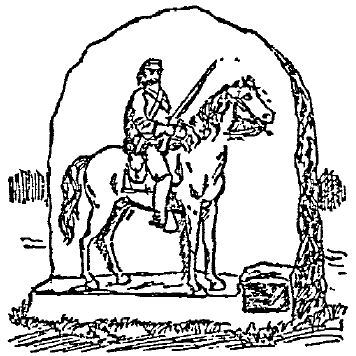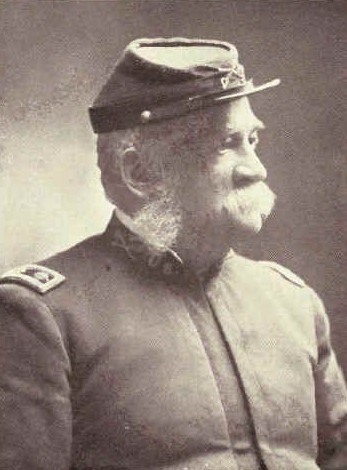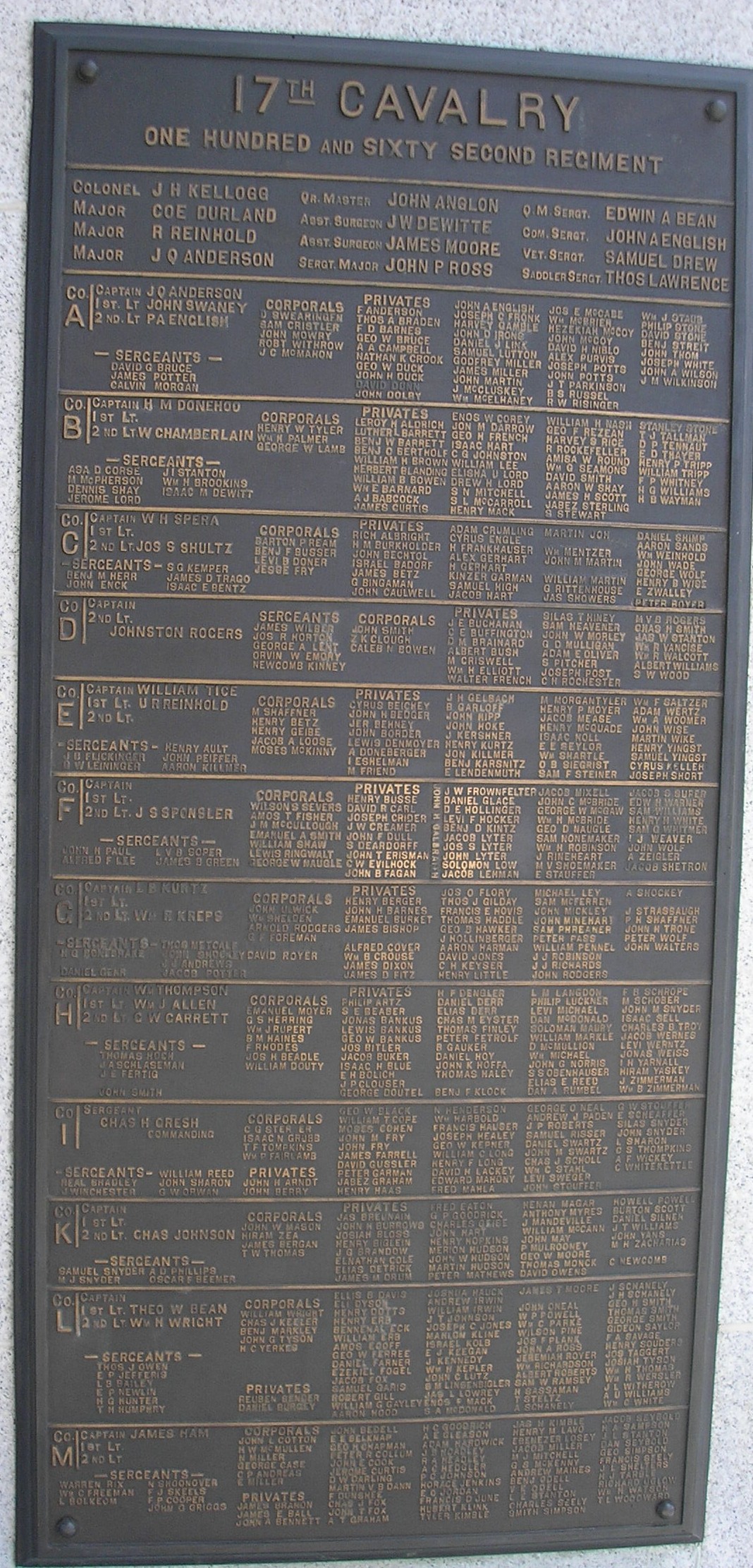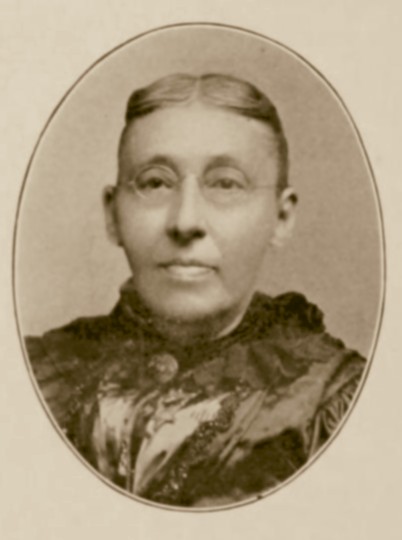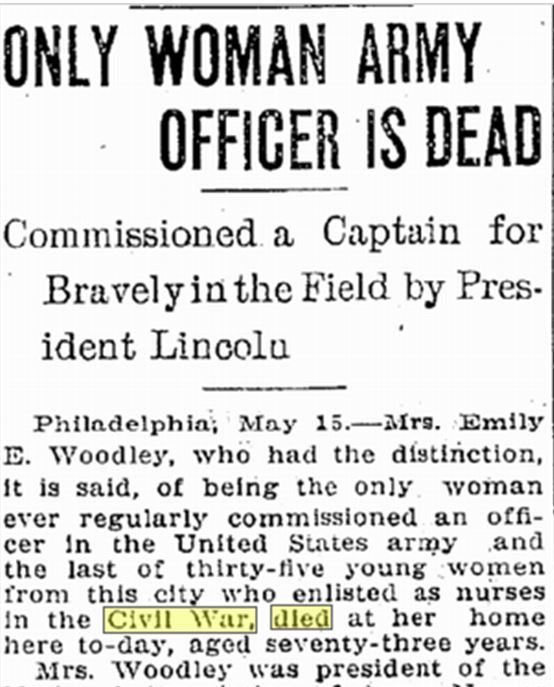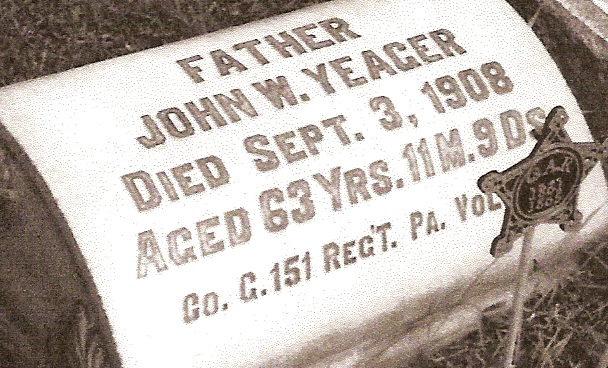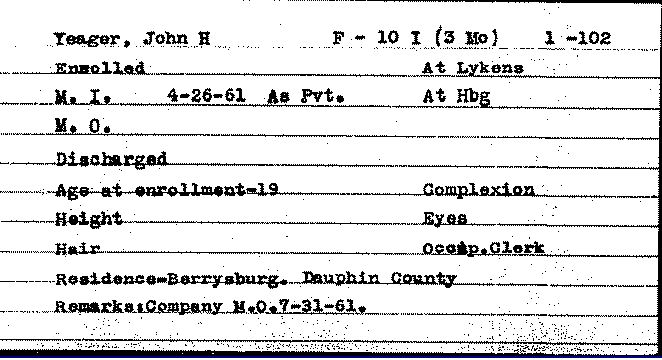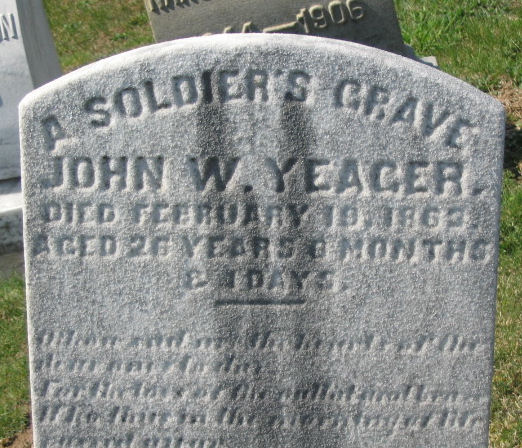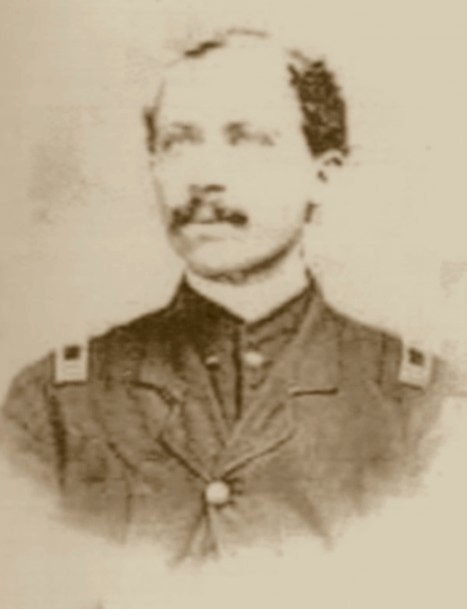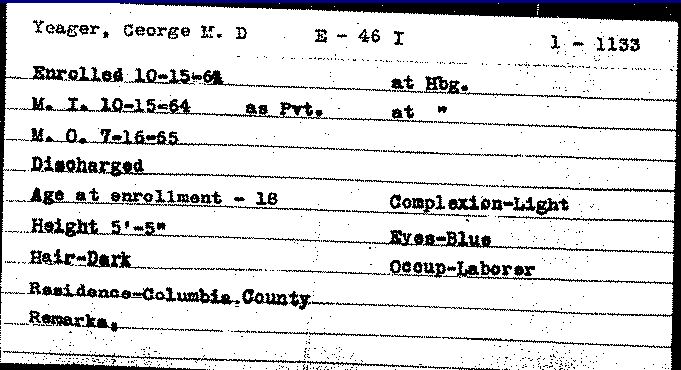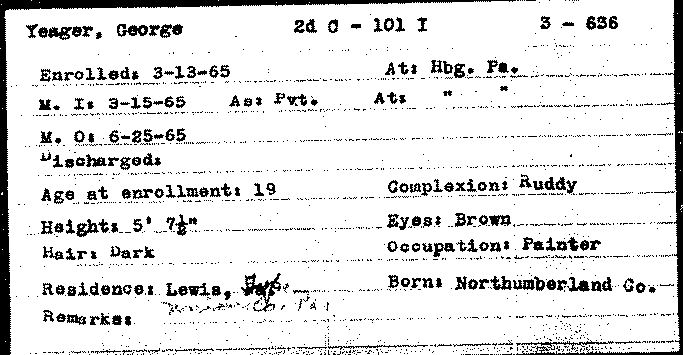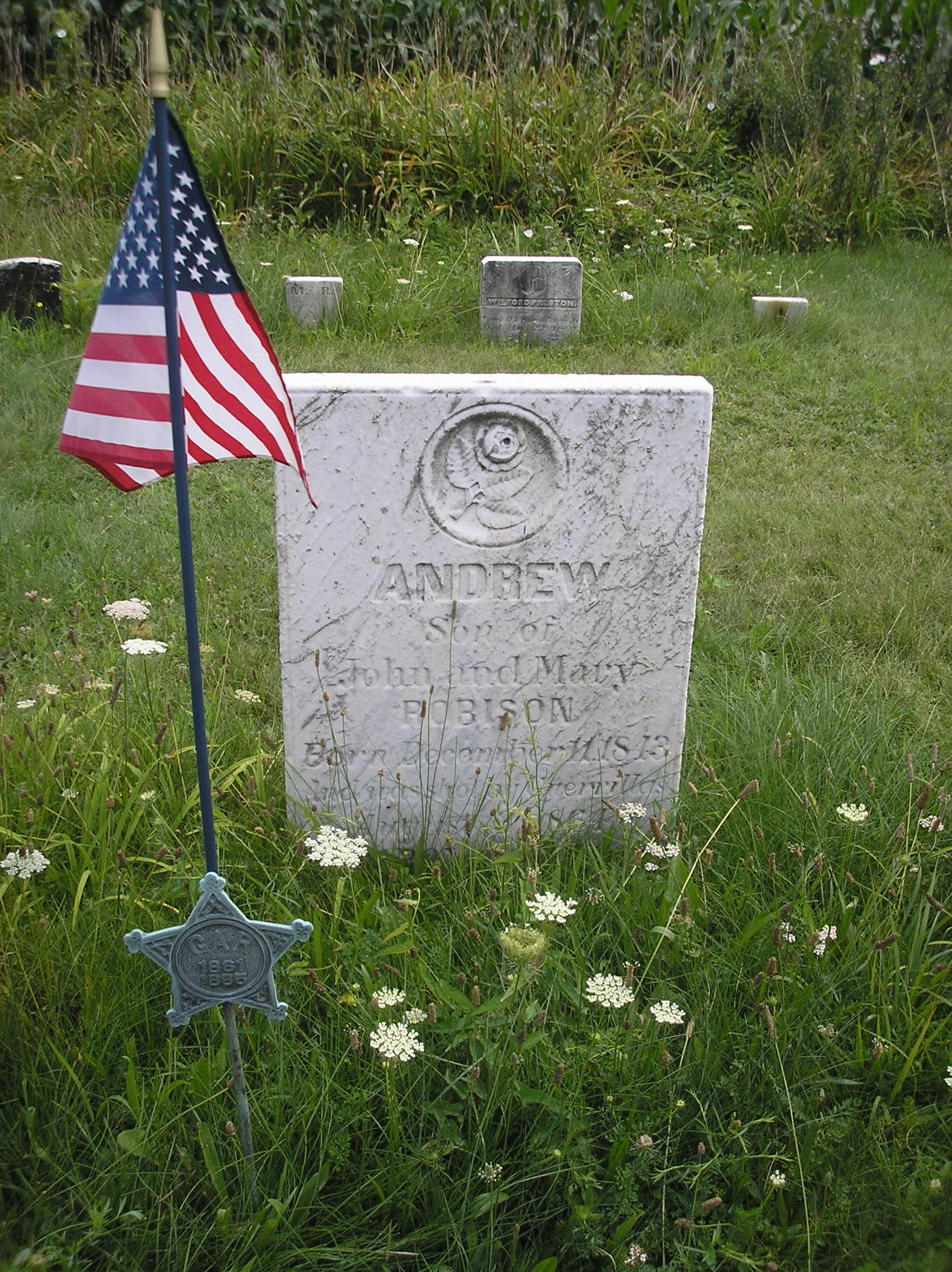Obituaries of Civil War Era Women, 1906-1908
Posted By Norman Gasbarro on May 29, 2015
The following are obituaries of some Civil War era women:
——————————–
From the Harrisburg Patriot, 17 May 1906
Attended Funeral of His Mother
Benjamin M. Nead attended the funeral of his mother, Mrs. Benjamin F. Nead, at Chambersburg, yesterday afternoon. Mrs. Nead was all her life a member of the First Lutheran Church, Chambersburg, and was a member of the Franklin County Bible Society. During the Civil War she was very active in the Soldiers’ Aid Society, and was one of the managers of the King Street School House Hospital. After the war she was one of the organizers of the Soldiers’ Monumental Association and took an active part in its management.
—————————-
From the Harrisburg Patriot, 22 June 1906:
Mary Reaver, wife of Isaac Reaver, a Civil War veteran of Plymouth Township, was instantly killed on the Pennsylvania Railroad near the Trenton cut-off bridge by a freight engine. She stepped in front of the freight to avoid a passenger train.
—————————-
From the Harrisburg Patriot, 28 January 1907:
NOTED BEAUTY OF CIVIL WAR TIMES PASSES AWAY
Special Dispatch to The Patriot
Carlisle, 27 January 1907 — Miss Rebecca P. Baird, a noted beauty and hospital worker of Civil War times, and the last representative of one of Pennsylvania’s oldest families, died here at 5:30 o’clock this morning. She celebrated her eighty-second birthday last Thursday and, the cause of her death was the infirmities of advanced years. She was a daughter of Samuel Baird and a sister of Spencer F. Baird, the illustrious head of Smithsonian Institute. She was a cousin of Senator Boies Penrose and Hon. E. W. Biddle of Carlisle, and an Aunt of Miss Christine Biddle and Mrs. Moncure Biddle of Philadelphia. She has many relatives in Baltimore, Washington, Philadelphia, New York, and Brooklyn, who stand high socially. Miss Baird resided in Carlisle for many years. The funeral will be held Wednesday.
—————————-
From the Harrisburg Patriot, 6 Apr 1907:
President Margaret Weikel Dead
Shamokin, 5 April 1907 — Mrs. Margaret Weikel, President of the Women’s Auxiliary of Sons of Veterans of Pennsylvania, died here today from blood poisoning.
—————————
From the Harrisburg Patriot, 16 September 1907:
Mrs. Emily D. Brooks
Mrs. Emily D. Brooks, widow of Captain George A. Brooks, who was killed in the Civil War, died yesterday morning about 7 o’clock at her home, 21 South Second Street. Mrs. Brooks was a daughter of Theodore F. Scheffer.
For the past several months Mrs. Brooks had been more or less ill, her failing health being due to general debility. On 4 July, she took to her bed and since then her health has steadily declined. Funeral services will be held tomorrow afternoon at 2 o’clock at her home. Rev. S. Winfield Herman, past or of Zion Lutheran Church, of which Mrs. Brooks had long been a member, will officiate and interment will be made in the Harrisburg Cemetery.
Mrs. Brooks was the wife of the Captain of Company D, Forty-sixth Pennsylvania Volunteers [46th Pennsylvania Infantry], during the War of the Rebellion. Captain Brooks was shot and killed at the Battle of Antietam. She is survived by one son W. D. Brooks, of Pittsburgh. Mr. Brooks formerly lived here and is well known in this city. He is here with his daughters, Helen Brooks and Emily Brooks, for the funeral. Three brothers also survive Mrs. Brooks. They are B. F. Scheffer, T. J. Scheffer, formerly a school director, and M. S. Scheffer.
—————————–
From the Harrisburg Patriot, 7 April 1908:
FIRST CIVIL WAR NURSE DEAD
Des Moines, Iowa – 6 April 1908 — Upon the forty-first anniversary of her marriage Aunt Becky Young, the first woman to offer herself as a nurse when the Civil War broke out, died today at her home here. She was seventy-six years old.
——————————
From the Harrisburg Patriot, 11 April 1908:
CAT CAUSES WOMAN’S DEATH
Was Fatally Burned When Pet Upset Burning Lamp
Boston, 10 April 1908 — Mrs. Catherine C. Tucker, matron of a feline hospital in South Boston lost her life last night in an accident caused by her favorite cat. The cat upset a lamp and in a vain effort to save her pet Mrs. Tucker received burns from which she died.
Mrs. Tucker was the widow of Captain Thomas Tucker, a Confederate commander who was killed after the Civil War by the explosion of a boat on the Mississippi.
—————————–
From the Harrisburg Patriot, 26 September 1908:
Mrs. Mary Mullen Dead
Mrs. Mary Mullen died at 6:30 o’clock yesterday morning at the home of her daughter, Mrs. Ida Brown, 1419 Fulton Street. She was eighty-three years of age and had been a widow since the Civil War. About a week ago she was paralyzed and she never recovered consciousness. She is survived by two sons, Joseph Muller and Christian Mullen, and three daughters, Mrs. Sarah Stills, of Williamsport; Mrs. Susan Burton of Reading; and Mrs. Ida Brown, of this city. She also left over a score of grandchildren, twenty-four great grandchildren. Funeral services will be held at 12:30 o’clock Sunday afternoon at Harris African Methodist Episcopal Zion Church, Marion Street. Rev. W. H. Marshall will have charge.
 ;
;
